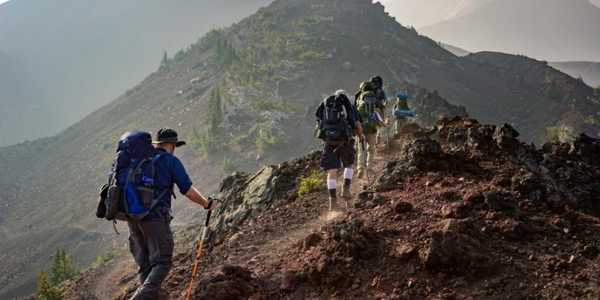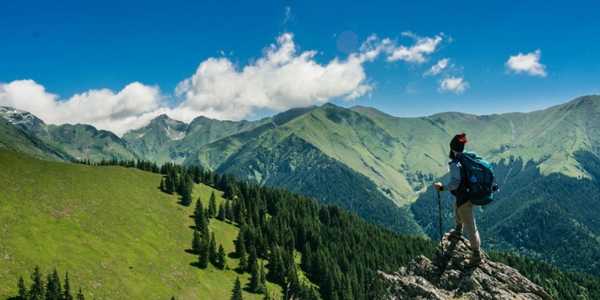Adventure travel has increased in popularity over recent years, appealing to a diverse array of individuals seeking more than just a typical vacation. The popularity of adventure travel can be attributed to the unique experiences it offers, the physical and mental challenges it presents, and the profound sense of accomplishment it delivers. This article delves into the reasons behind the rising popularity of adventure travel, explores the myriad benefits of adventure trips, and highlights how adventure travel benefits not only individuals but also communities and the environment.

The Popularity of Adventure Travel
The popularity of adventure travel is not a fleeting trend but a notable shift in how people choose to spend their leisure time. Unlike traditional tourism, which often involves passive activities such as sightseeing and relaxation, adventure travel engages participants in active, sometimes extreme, experiences. These activities can range from mountain climbing, scuba diving, and trekking to more niche pursuits like spelunking or paragliding.
One major factor contributing to the popularity of adventure travel is the desire for authentic, immersive experiences. Modern travelers, particularly millennials and Gen Z, seek to connect with the cultures, landscapes, and wildlife of the destinations they visit. Adventure travel provides this connection by taking participants off the beaten path and into the heart of their chosen environments.
Additionally, the sudden rise of social media has played a remarkable role in increasing the popularity of adventure travel. Different platforms like Instagram and YouTube are flooded with stunning images and videos of exotic locales and daring exploits. These posts not only inspire viewers but also encourage them to pursue their adventurous journeys, further fueling the demand for such experiences.
The Benefits of Adventure Trips
The benefits of adventure trips are manifold, impacting various aspects of an individual's life. Firstly, these trips offer substantial physical health benefits. Engaging in activities like hiking, climbing, or diving requires a good level of fitness, which can lead to improved cardiovascular health, muscle strength, and overall physical endurance. Unlike sedentary vacations, adventure trips often demand physical exertion, which promotes a more active and healthier lifestyle.
Another significant aspect of the benefits of adventure trips is the mental health advantage they offer. Adventure travel can be a powerful antidote to stress and anxiety. Immersing oneself in nature, facing and overcoming physical challenges, and experiencing new and thrilling activities can lead to reduced overall stress levels, increased feelings of happiness, and a greater sense of well-being. The release of endorphins during physical activities and the sense of achievement after completing a challenging task contribute to these positive mental health outcomes.
Moreover, the benefits of adventure trips extend to personal growth and development. Adventure travel pushes people out of their comfort zones, encouraging them to confront fears, develop problem-solving skills, and build resilience. These experiences can yield greater self-confidence and self-esteem as individuals prove to themselves that they can handle difficult and unpredictable situations.
Adventure Travel Benefits for the Community
The adventure travel benefits extend beyond individual gains, positively impacting the communities involved. Adventure tourism often promotes sustainable practices and supports local economies. When travelers engage in activities like guided treks, local homestays, or eco-friendly tours, they contribute to the livelihoods of local guides, artisans, and business owners. This influx of income can help preserve cultural heritage and support community development projects.
Furthermore, the adventure travel benefits include fostering environmental awareness and conservation efforts. Many adventure travel companies emphasize eco-friendly practices and educate travelers on the importance of preserving natural habitats. Participants often leave with a greater appreciation for the ecology and a commitment to sustainable travel practices, which can lead to long-term positive impacts on conservation efforts.
Environmental and Ethical Considerations
While the popularity of adventure travel brings numerous benefits, it is important to mark the potential environmental and ethical concerns associated with it. The influx of tourists to remote and fragile ecosystems can lead to environmental degradation if not managed properly. Responsible adventure travel practices are essential to minimize negative impacts and ensure that these destinations remain pristine for future generations.
Adventure travel companies and travelers alike must prioritize sustainability. This includes choosing eco-friendly accommodations, respecting local wildlife and habitats, and adhering to the principles of "Leave No Trace." By promoting responsible travel behaviors, the benefits of adventure trips can be maximized while minimizing their environmental footprint.

Additionally, ethical considerations are vital in adventure travel. Ensuring that local communities are fairly compensated and that their rights and traditions are respected is paramount. Travelers should seek out companies that prioritize ethical practices, such as fair wages for guides and the avoidance of exploitative activities.
Preparing for an Adventure Trip
Embarking on an adventure trip requires a completely careful planning and preparation. To fully reap the adventure travel benefits, it is vital to be physically and mentally prepared for the challenges ahead. Here are some tips for planning a successful adventure trip:
- Research Your Destination: Understand the terrain, climate, and cultural aspects of your chosen destination. Knowing what to expect can help you prepare adequately and respect local customs.
- Train Physically: Depending on the activities planned, ensure you are in good physical condition. Regular exercise, strength training, and cardiovascular workouts can help in the preparation your body for the physical demands of the trip.
- Pack Appropriately: Equip yourself with the necessary gear and clothing for your adventure. This might include sturdy hiking boots, weather-appropriate attire, and specialized equipment for activities like diving or climbing.
- Seek Professional Guidance: If you are new to adventure travel, consider hiring professional guides or joining organized tours. Experienced guides can enhance your safety and enrich your experience with their knowledge of the area.
- Practice Safety Measures: Always prioritize safety. Follow guidelines, use proper equipment, and be aware of your limits. Adventure travel can be exhilarating, but it also comes with risks that should not be underestimated.
Conclusion
The popularity of adventure travel continues to rise as more people seek thrilling and meaningful experiences that go beyond traditional tourism. The benefits of adventure trips are vast, encompassing physical health, mental well-being, personal growth, and community support. By embracing responsible and ethical practices, adventure travelers can ensure that their journeys have a positive impact on both themselves and the destinations they visit.
